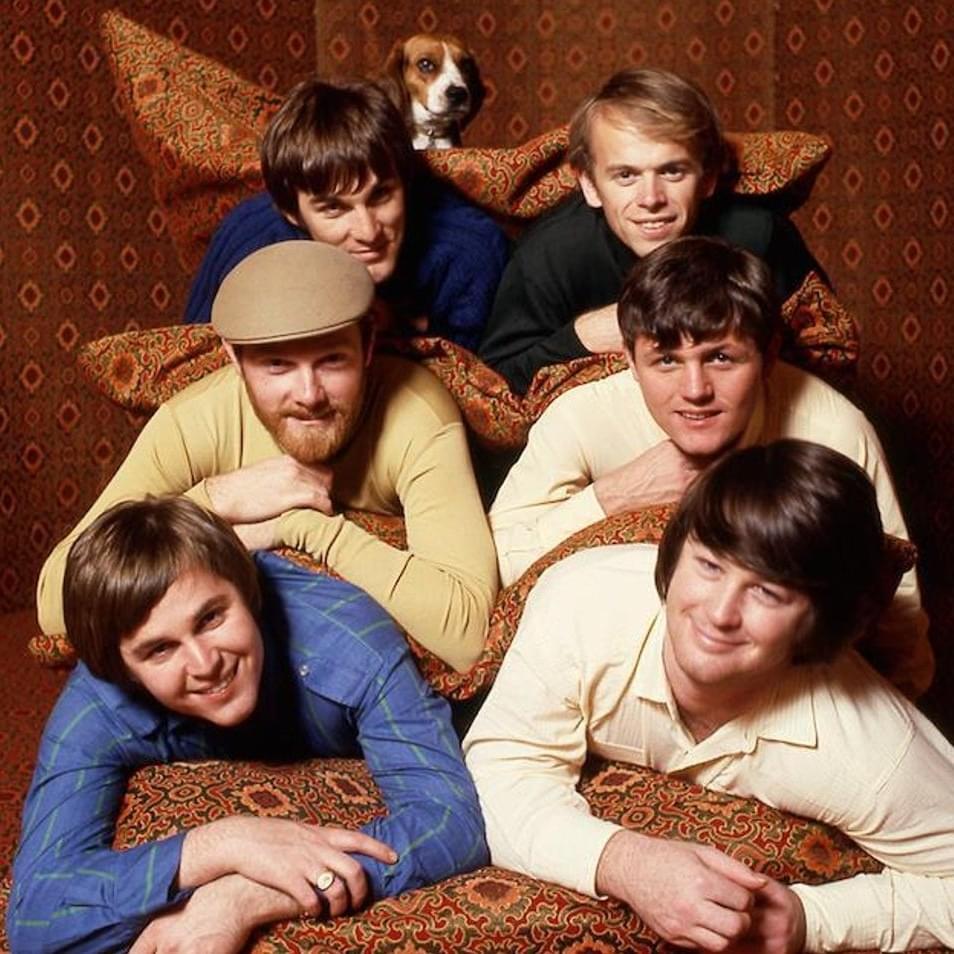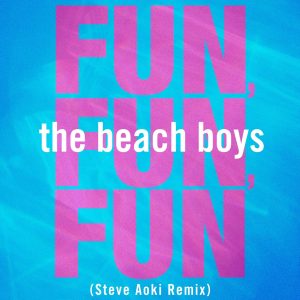 The Beach Boys
The Beach Boys
The Beach Boys are one of the world’s best-selling bands of all time and the first American pop band to reach the 50-year milestone. Their vocal harmonies are among the most unmistakable and enduring of the rock and roll era.
Formed in 1961 in Hawthorne, California, by Brian Wilson, his two brothers Carl and Dennis, their cousin Mike Love, and classmate Al Jardine, the group’s first single “Surfin'” got them signed to Capitol Records and they quickly became one of the most popular and successful artists of the surf music craze of the 1960s. From 1962 to 1966, The Beach Boys scored over twenty top 40 hits in the US including the chart-toppers “I Get Around”, “Help Me Rhonda” & “Good Vibrations” along with the top 5’s “Surfin USA”, “Fun, Fun, Fun”, “California Girls”, “Barbara Ann” & “Sloop John B”. Several of the band’s singles also found top 40 success in Canada, Australia, Sweden and the UK. In 1965, de facto leader Brian Wilson suffered a mental breakdown due to the stress of writing, producing & touring combined with substance abuse issues, causing him to step down and stop traveling with the band on tour.
Inspired by producer Phil Spector and The Beatles' Rubber Soul, Brian focused on studio work, determined to keep the group relevant as the surf music scene was fading with their 1966 album Pet Sounds. Despite tension between members in the studio about this new direction, lack of faith from the record label, mixed reviews, and comparatively lukewarm reception initially in the US, the album still found massive success in the UK and earned accolades from fellow artists including The Beatles, who acknowledged that the album was their inspiration to further push the boundaries of pop music with their landmark album Sgt. Pepper’s Lonely Hearts Club Band. Eventually Pet Sounds would be acknowledged as one of the greatest albums ever recorded by several media outlets like The Times, Mojo Magazine, The Guardian, VH1, BBC and Rolling Stone.
Brian’s condition continued to deteriorate in the late 1960s, so other members contributed to songwriting through the 1970s with little chart success. Only three singles would reach the US top 20 for the entire decade, two of them being collaborative efforts with popular acts of the time. However, the band soldiered on as a lucrative touring act.
The 1980s were also a rough time for The Beach Boys with Brian’s psychiatrist discouraging him to have contact with other members, and Dennis' death in 1983 while swimming intoxicated. Their two biggest hits between 1980 and 1987 came from simply following popular trends of the time. “The Beach Boys Medley” took advantage of the Stars On 45/Hooked On Classics phenomenon of the early 80s, and a collaborative cover of “Wipe Out” with The Fat Boys was an effort to jump on the new trend of combining rock with hip-hop that had recently been established by the top 5 success of Aerosmith & Run DMC’s reinterpretation of “Walk This Way”.
It wasn’t until 1988’s Grammy-nominated “Kokomo” that The Beach Boys' rediscovered massive chart success around the world on their own merits, reaching #1 in the US, Japan and Australia and the top 10 in Canada and Germany. That same year, the band was inducted into the Rock And Roll Hall Of Fame and received a Lifetime Achievement Grammy Award. However, success was short-lived as “Still Cruisin'” peaked near the bottom of the Hot 100 the following year and became the group’s last single to chart in the US. 1992’s Summer In Paradise was derided by fans and critics, became the band’s only album to not appear on the Billboard 200, and would be their last studio effort of original material for twenty years.
After Carl’s death in 1998, Brian did not seek to use the band name so Love and Jardine squabbled over the ownership of it. Love secured the right to tour as The Beach Boys, so Jardine formed various incarnations of a touring act without using The Beach Boys name. In 2012, Brian, Love and Jardine reunited, released their first new album of original material since 1992 with That’s Why God Made The Radio, and toured together for the first time since 1965 – joined by Bruce Johnston (who’d replaced Brian for touring in 1965) and David Marks (a neighborhood friend who had performed on the group’s earliest albums) to fill Carl and Dennis’s spots. Several compilations of old recordings, including live and unreleased material, have since been released regularly.
The Beach Boys Releases
The Beach Boys Remixes



